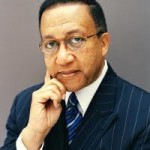
By Ben Chavis, NNPA
Each generation of African Americans has been challenged with both old and new hurdles to clear in the life-long marathon to achieve success and to fulfill career goals and objectives. The importance of attaining a quality education cannot be overstated in particular for the African American community.
I serve on the Board of Directors of the National Association for Equal Opportunity in Higher Education (NAFEO) that represents the interests of 126 Historically Black Colleges and Universities (HBCUs). NAFEO is the only national membership association of its kind, representing the presidents and chancellors of the diverse black colleges and universities: public, private and land-grant, two-year, four-year, graduate and professional, historically and predominantly black colleges and universities.
Working with NAFEO has help me to grasp and to understand the complex matrix of issues involving our nation’s HBCUs. Completing a college education in America can determine one’s quality of life quantitatively in terms of potential annual income as well as helping to become socially self-sustainable. As we all know, however, a college education is now more expensive than ever before; and, entry to good schools is highly competitive.
Recently, I was pleased to learn about a program that was specifically created to reach and to provide students scholarships at Historically Black Colleges and Universities. Ford Motor Company and Ford Motor Company Fund are reaching out to students attending Historically Black Colleges and Universities for their third edition of the Ford HBCU Community Challenge Competition.
Up to $75,000 in scholarships, and university and community grants will be awarded for the first-place student team and its project. The Ford HBCU Community Challenge is an extension of one of the Ford Fund’s signature educational programs — the Ford College Community Challenge.
The Ford HBCU Community Challenge is conducted in partnership with the Tom Joyner Morning Show and the Rickey Smiley Morning Show, and encourages HBCU students to design community projects that address pressing local needs. Salute to Tom Joyner and Rickey Smiley for their leadership in the effort. The program’s theme is “Building Sustainable Communities.” I like this theme because it helps to encourage this generation of African American college students to consider the importance of community development as a professional career focus.
The top three teams selected will be flown to the Ford World Headquarters in Dearborn, Michigan to present their projects before a panel of automotive and media professionals.
We need to look for ways to engage and challenge our young talented minds with an opportunity to make a difference in our communities. The truth is there should be more corporations that follow the Ford Motor Company emphasis on higher education and community development.
Every HBCU institution should urge its students to participate in this exciting program. It is an opportunity for the students, universities and communities to all win. Timing is important to get the necessary information to apply for this opportunity. Go to the following links to get information about the Ford HBCU Community Challenge and www.rickeysmileymorningshow.com/hbcuchallenge.
Student have until November 1, 2015 to apply and to enter. Let’s inform college students in our communities about this now. Let’s raise up a new generation of innovators, developers, engineers and leaders who are committed to the sustainable development of our communities.
Dr. Benjamin F. Chavis, Jr. is the President and CEO of the National Newspaper Publishers Association (NNPA) and can be reached for national advertisement sales and partnership proposals at: dr.bchavis@nnpa.org; and for lectures and other professional consultations at: http://drbenjaminfchavisjr.wix.com/drbfc





Bravo! FoMoCo’s program: HBCU Challenge Competition with $75,000 in scholarships. Let us hope that in years to come, this program can be expanded substantially.